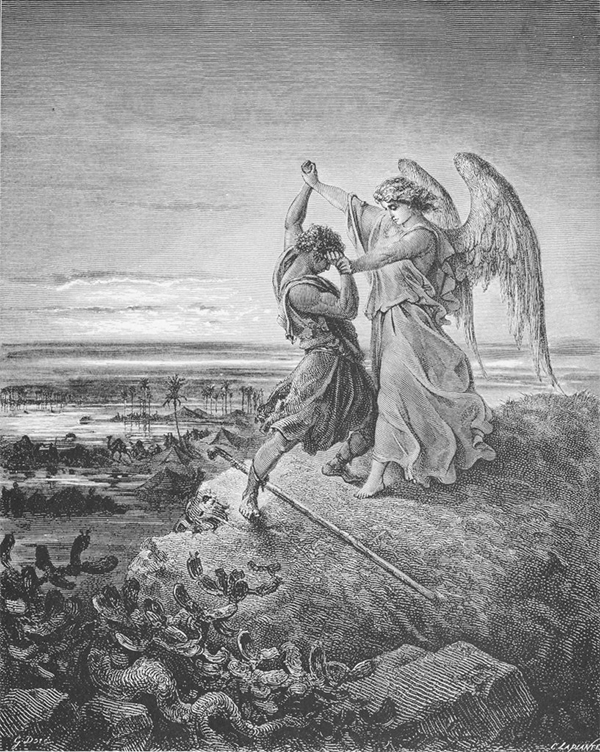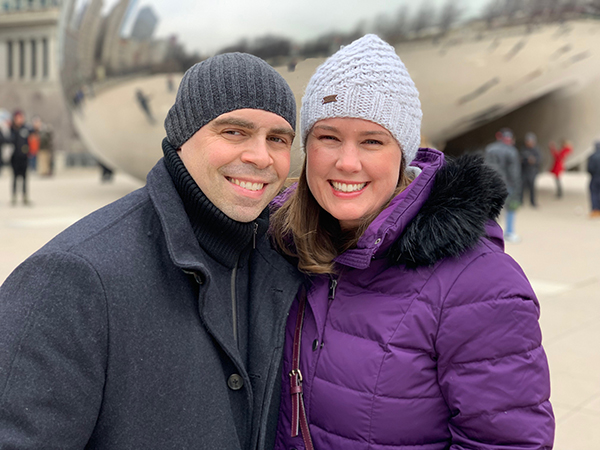
Growing up, all things “Christian” were pretty engrained in my experience. I’m the granddaughter, daughter and sister of pastors. I’m the niece and cousin of missionaries and Christian educators. I asked Jesus into my heart sitting in a grocery cart when I was four years old.
As I grew up, I sang the songs (“Bullfrogs and Butterflies” and “The Music Machine” were my Veggie Tales equivalent). I learned the acronyms: S.O.A.P. for Bible Study, A.C.T.S. for prayer, and T.U.L.I.P. for reformed theology. Perhaps central to this, I learned the Bible. I internalized its stories, memorized its books in order, recited verses for gold stars, and took classes called Bible Basics and Overview of the Bible at church. As I grew older, I learned overarching beliefs about what the Bible teaches about issues as cosmic as the world’s creation and destruction and as pedestrian as my dating life and my perspective on current events.
But as I’ve grown, I’ve had experiences that threw what I had thought were crystal clear understandings of my faith off balance. They challenged what I believed, introduced perspectives I hadn’t considered, and, most powerfully, revealed assumptions I had made without sufficient thought. These situations were always uncomfortable. Sometimes they were downright painful. But as I grew through them, I found that challenging my assumptions often led to a richer and realer faith than I had known was possible.
Over the past few years, I’ve had that kind of experience with the Bible itself. A few years ago, I began wrestling with a challenging issue that was causing very real pain for me and people I loved. It was an issue about which I had always been taught a certain theology. But things got tricky when the person who had taught me most of my theology changed his mind (gasp!).
First of all, the idea of someone changing their understanding of what the Bible teaches was new to me. I’m not sure I’d ever known anyone who had changed their theology about a certain issue while remaining committed to Christ and passionate about the Scripture.
But what really threw me was a realization that I hadn’t developed theologies for myself, based on my own study. All my life, I had adopted theologies developed by other people. And if other people could change their minds, then I should probably learn to make up my own mind about what I believed and why.
In his text Living by the Book, author Howard Hendricks outlines many reasons why people neglect to study the Bible. Reasons range from “it’s boring and irrelevant to my life” to “my pastor can just explain it to me,” from “I’m not sure I trust it” to “I don’t know how or where to start.”
In response to these challenges, I think some of us just quit. We allow others to study the Bible for us. We listen to our pastors or teachers at church, on the radio or on a favorite podcast, and we simply take their interpretive word for it. Others of us continue to read the Bible, but we don’t dig—we don’t study. Rather, we keep our interaction with the Bible devotional in nature: a daily reading, a few immediate observations and a closing prayer. As a result, our own experience with the Bible ends up to be pretty superficial. Even worse, we begin to believe that the Bible itself is as superficial as our treatment of it.

In her book Inspired, author Rachel Held Evans recounts her own experience with the Bible’s evolving identity in her life. As a child, she saw the Bible as a divine storybook, filled with larger-than-life characters and epic narratives. As a teenager, she says, the Bible “…functioned as a handbook, useful because it told me what to do. I turned to it whenever I had a question about friendships, dating, school, body image…any number of adolescent concerns.” As a young adult, enrolled at a conservative Christian college, the Bible became “an answer book, or position paper, useful because it was right. The Bible, I learned, was the reason Christians voted for Republicans, rejected evolution, and opposed same sex marriage. It was the reason I could never, as a woman, be a pastor, the reason I should always, as a woman, mind my neckline.”
However, Held Evans found that, as questions and doubts began to arise, her treatment of the Bible was too shallow to provide satisfactory answers. And yet, she couldn’t abandon her faith in the God of those scriptures. It wasn’t the Bible that was shallow. It was how she interacted with it. People she knew—people who loved God and loved the scriptures—often came to different conclusions—and could defend them biblically.
So she did what I’m finding myself learning how to do. She wrestled. She rejected her insufficient perceptions about the Bible: just a storybook, guidebook or position paper. Instead, she wrestled with what it really is: “…a dynamic, centuries-long conversation with God and God’s people that has been unfolding since creation, one story at a time.”
I’m new to this wrestling match, but I am learning a couple of things.
Number one: This process is time-consuming. I’m not even trying to get through the Bible in a year anymore. I’m spending days or longer on one short passage at a time.
Number two: This is a deeply spiritual process. I find that I observe things as the Spirit shows them to me. I’m making connections and seeing God’s message as he reveals it to me. And I know that any softening of my heart to changes I need to make in my life can only come from the Holy Spirit.
Number three: While I’m using a particular process (found in Hendricks’ Living by the Book), this work is messy. God is opening my mind and heart to reveal himself, but sometimes, I’m having to wrestle to see it.

In Genesis 32, Jacob meets God, but has an unusual interaction with him. God doesn’t comfort Jacob. He doesn’t give Jacob any direction or command. Instead, Jacob and God wrestle—all night. God doesn’t overpower Jacob—but allows Jacob to struggle with him, to push on him. I think we’re asked to have a similar relationship with God and with his scriptures. While the scriptures certainly comfort and guide us, they are more than comforting platitudes and a list of dos and don’ts. Rather, they reveal pieces of humanity’s history as people have interacted with the God of the cosmos. It’s a complex relationship, to be sure. So the image of a wrestling match shouldn’t surprise us. And like Jacob, we shouldn’t be surprised when we walk away from that match with a hard-won blessing—and a bit of a limp.

Amy Parodi has been a member of LifeWay Church since 2003. She lives in Northeast Tacoma with her husband Nick and three kids, Olara, Marcus and Gina.